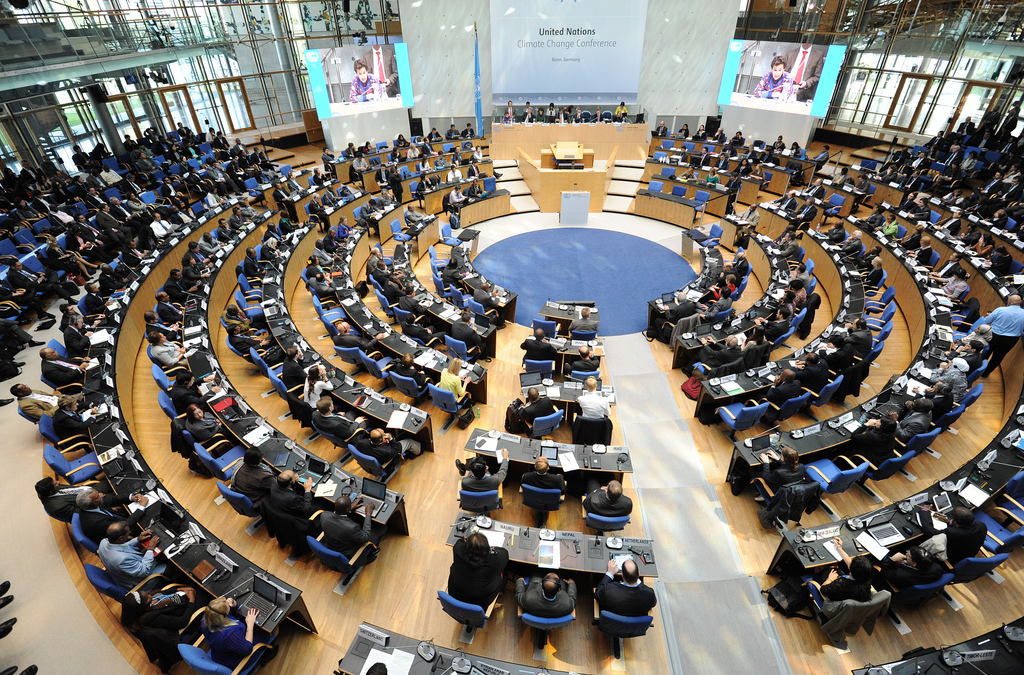Nations are working toward a new global climate change agreement later this year in Paris. These negotiations offer governments a critical opportunity to craft a broad, balanced and durable agreement strengthening the international climate effort. The talks are taking place under the U.N. Framework Convention on Climate Change, a treaty adopted in 1992 that includes virtually every nation on earth. They will conclude at the 21st Conference of the Parties (COP 21) in December in Paris. Launched at COP 17 in Durban, South Africa, the talks are aiming for a post-2020 agreement that will have “legal force” and be “applicable to all.” At COP 19 in Warsaw, countries were urged to present their “intended nationally determined contributions” (INDCs) to the new agreement well ahead of the Paris conference. The United States and the European Union were among the first to submit their INDCs; others are expected throughout the year. The broad outlines of the emerging agreement reflect a new model of international climate governance blending “top-down” and “bottom-up” approaches to achieve both broad participation and stronger action. (C2ES’s Elliot Diringer explores this new hybrid approach, and prospects for Paris, in a recent article in Nature.) Core issues in the negotiation include the legal nature of the agreement, differentiation of responsibility among developed and developing countries, ways to strengthen climate adaptation and support for developing countries, rules to ensure transparency and accountability, and ways the agreement can strengthen ambition over time. C2ES is providing expert analysis of issues and options in the Paris climate negotiations and is facilitating informal discussions among negotiators from key countries through its Toward 2015 dialogue. C2ES Resources: These reports and policy briefs provide background on the Durban Platform talks and examine key issues:
- Nations’ Intended Nationally Determined Contributions
- Building Flexibility and Ambition into a 2015 Climate Agreement
- Structure of a 2015 Climate Change Agreement
- Evolution of the International Climate Effort
- Issues for a 2015 Climate Agreement
- Alongside the UNFCCC: Complementary Venues for Climate Action
- The Durban Platform: Issues and Options for a 2015 Agreement
| Toward 2015: An International Climate Dialogue C2ES is convening an informal dialogue among senior policymakers from more than 20 countries exploring options for a 2015 agreement. The dialogue is co-chaired by Valli Moosa, former environment minister for South Africa, and Harald Dovland of Norway, former co-chair of the Durban Platform talks. (See the dialogue overview and participants.) |
C2ES Event: The Path to Paris: National Perspectives on a New Global Climate Agreement C2ES convened top negotiators from China, the European Union, Gambia and New Zealand and the co-chairs of its Toward 2015 dialogue on April 23, 2015, to discuss the outlook for a climate change agreement this year in Paris.
Video: The Path to Paris: National Perspectives on a New Global Climate Agreement











